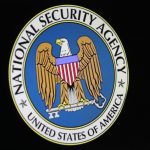Microsoft gains support from Mozilla, EFF, Google and Apple in fight against US gagging orders

Microsoft is fighting the US Justice Department in an attempt to quash a law that prevents companies informing customers that the government is requesting their data. The technology giant has the backing of other tech companies as well as media outlets.
Amazon, Apple, Google, Fox News, Electronic Frontier Foundation and Mozilla are among those offering their support to Microsoft. The lawsuit says that blocking companies from keeping their customers informed is unconstitutional, and it comes at a time when tech companies in particular are keen to be as open and transparent as possible about government requests for data.
Iran starts to roll out its own 'domestic internet'

Iran, much like China, is not a country that has the best reputation when it comes to granting citizens unfettered access to the internet. Now, a new initiative is underway, which sees the roll out of its own 'domestic internet', dubbed the National Information Network.
The country is rolling out its own national internet in a bid to provide affordable internet access to people, but there are concerns that there will be severe limits placed on online activity. Iran already blocks access to the likes of Facebook and Twitter, and a government-controlled internet, it is feared, could lead to a further erosion of privacy and individual control.
Mass surveillance by UK government is acceptable but there are privacy concerns, says review

A review into mass surveillance and bulk data collection by the UK government has concluded that there is a strong case for allowing such activity. The privacy-invading activities of MI5, MI6 and GCHQ were the subject of a report by independent reviewer David Anderson QC, and the findings have been welcome by prime minister Theresa May.
The report is likely to concern privacy advocates, particularly when Anderson goes on to say that he agrees 'in principle' that there could be cases for hacking phones and computers. It gives heavyweight backing to the controversial Investigatory Powers bill (snooper's charter).
EU-US data-sharing Privacy Shield agreement will run for at least a year without legal challenges

The rocky road to finding a replacement to the Safe Harbour data transfer agreement appears to have become a little smoother. The successor to the EU-US arrangement is Privacy Shield, and European regulators have said it will be permitted to run to at least a year without intervention.
Having been deemed unsuitable because of the level of access it gave the US to European data, Safe Harbor's replacement has been a long time coming. The head nod from regulators will be widely welcomed by the tech industry, as well as those disturbed by NSA surveillance revelations.
Malicious computers are spying on Dark Web users on Tor

For people concerned with their privacy the Dark Web and Tor seem like natural bedfellows. Not for the first time, concerns are currently raised that Tor may not be anywhere near as anonymous as users might like to think, with researchers saying they have discovered dozens of computers engaged in surveillance of the Dark Web.
Computer scientists from Northeastern University used honeypot addresses to identify over 110 malicious machines storing identifying information about users accessing .onion addresses via Tor. At the moment it is not clear whether data gathered by the computers has been used to identify individuals, but the possibility exists.
Privacy alert: Maxthon web browser sends private data about users to China

In the world of web browsers, there are four or five big names to choose from but no end of smaller alternatives. One such browser is Maxthon, and security researchers have just discovered that this Chinese-produced browser is transmitting a wealth of data about users back to China.
Researchers at Fidelis Cybersecurity and Exatel found that Maxthon frequently sends zip files to Beijing over HTTP and this contains a terrifying amount of data about users' browsing habits. The ueipdata.zip file incudes, among other things, details of the sites visited by users, the applications they have installed, and what searches have been performed.
EU-US Privacy Shield: White House promises not to spy on European data

The replacement for data protection arrangement Safe Harbour, the EU-US Privacy Shield, has undergone final amendments. Safe Harbour has already been deemed invalid, and frantic talks have been underway to finalize its successor.
Despite gaining the backing of Microsoft, EU-US Privacy Shield has faced a great deal of criticism. In the wake of the Brexit vote in the UK referendum on EU membership, the UK may be forced to comply with the rules even though it is in the process of exiting the Union. One of the most significant changes to come about -- and one that will be welcomed by privacy advocates -- is a promise from the White House not to engage in indiscriminate bulk data collection of European data.
A win for privacy: Senate blocks FBI from gaining warrantless access to browsing histories

A Senate amendment brought forward by John McCain that would have given the FBI the right to browse suspects' phone and internet records without a warrant has been narrowly defeated.
The vote very nearly went the other way -- there were just two votes in it when the counting was over. McCain had hoped that pushing the amendment as a counter-terrorism tool (particularly against "non-U.S. citizen 'lone wolf' attackers") would be enough to get the required 60 votes. But it seems that the Orlando shooting that McCain cited as an incentive for the changes was not enough to convince others.
Internet of Things devices are NSA's latest target

The Internet of Things (IoT) may be the US National Security Agency’s next potential target for spying and collecting data according to a comment made by its deputy director at a recent military technology conference.
During the conference, which was held in Washington DC on June 10, deputy director of the NSA Richard Ledgett said that the agency is considering potential ways it could collect data from internet-connected devices such as smart appliances and pacemakers.
Snowden: Scotland has its own NSA conducting mass surveillance of phone and internet activity

Documents leaked by Edward Snowden reveal that Scottish authorities have been engaged in gathering data about phone and internet usage in much the same way as the NSA and GCHQ. The Scottish Recording Centre (SRC) accessed information gathered as part of a bulk data collection program called MILKWHITE.
Scottish newspaper The National, in conjunction with the website CommonSpace, have exposed Scotland's role in the UK's mass surveillance programs. Police and tax authorities in Scotland -- devolved from UK forces -- were given accessed to what the Intercept describes as 'huge troves of metadata' gathered by spy agencies.
Snooper's Charter, aka the Investigatory Powers Bill, voted into UK law

The controversial Snooper's Charter -- or the Investigatory Powers Bill as it is officially known -- has been voted into law by UK MPs. An overwhelming majority of politicians (444 to 69) voted in favor of the bill which has been roundly criticized by both the public and technology companies.
The Investigatory Powers Bill grants the UK government, security, and intelligence agencies greater powers for monitoring internet usage, as well as permitting bulk data collection and remote hacking of smartphones. The law allows for the kind of mass surveillance that Edward Snowden warned about, and while the bill may have passed a majority vote, there are still those who fear not enough has been done to safeguard individuals' privacy.
The Intercept cracks open the Snowden archive including internal NSA newsletters

There can be few people who have had such an impact on people's perception of the government as Edward Snowden. Having exposed the convert spying activities of the NSA, he opened up a worldwide debate about privacy and surveillance that is still going on today. His revelations have shaped public opinion and changed the course of history.
Just as the likes of the Guardian have already helped to educate the world about what the NSA has been doing, so The Intercept is releasing a huge cache of internal NSA documents that give an intriguing insight into the agency's operations. The documents shed light on the NSA's work relating to terrorism, Iraq, and general surveillance.
GCHQ arrives on Twitter to give a more public face to the spy agency

The UK's GCHQ -- like its US counterpart the NSA -- is an agency traditionally shrouded in secrecy. Tasked with the job of spying on all and sundry in the name of intelligence gathering, the agency has just joined Twitter, greeting other users with an unoriginal "Hello, world".
With the concerns about privacy and security that blew up in the wake of Edward Snowden's NSA surveillance revelation, spy agencies around the world have been on a mission to boost their public image. GCHQ -- complete with the blue tick reserved for verified accounts -- will use Twitter to "provide news, updates, and opinions".
Facebook transparency report shows increase in government data requests, most with gagging orders

Facebook has published its latest Global Government Requests Report covering the second half of 2015. The transparency report reveals that there has been as 13 percent increase in the number of government requests for data, but it also shows that Facebook is still not able to be as transparent as it might want.
For the first time the social network is able to report about the number of data requests that have a non-disclosure order attached to them. More than half of the requests -- 60 percent, in fact -- have gagging orders that prevent Facebook from notifying users about requests for their data.
US cyberbombs ISIS in renewed tech warfare

ISIS has been able to gain notoriety not only because of the atrocities committed, but through incredibly careful and calculated use of technology in general and the internet specifically. The likes of Twitter and Facebook have been embroiled in an on-going battle against terrorist social media accounts, and now the US military is taking the fight online as well.
Cyber Command is waging cyber war on Islamic State, trying to cyberbomb the terrorist organization into submission and prevent it from recruiting or spreading propaganda online. Using information gathered from the NSA, Cyber Command has turned its attention away from its usual targets such as Russia and China to focus instead on ISIS.
Recent Headlines
Most Commented Stories
BetaNews, your source for breaking tech news, reviews, and in-depth reporting since 1998.
Regional iGaming Content
© 1998-2025 BetaNews, Inc. All Rights Reserved. About Us - Privacy Policy - Cookie Policy - Sitemap.